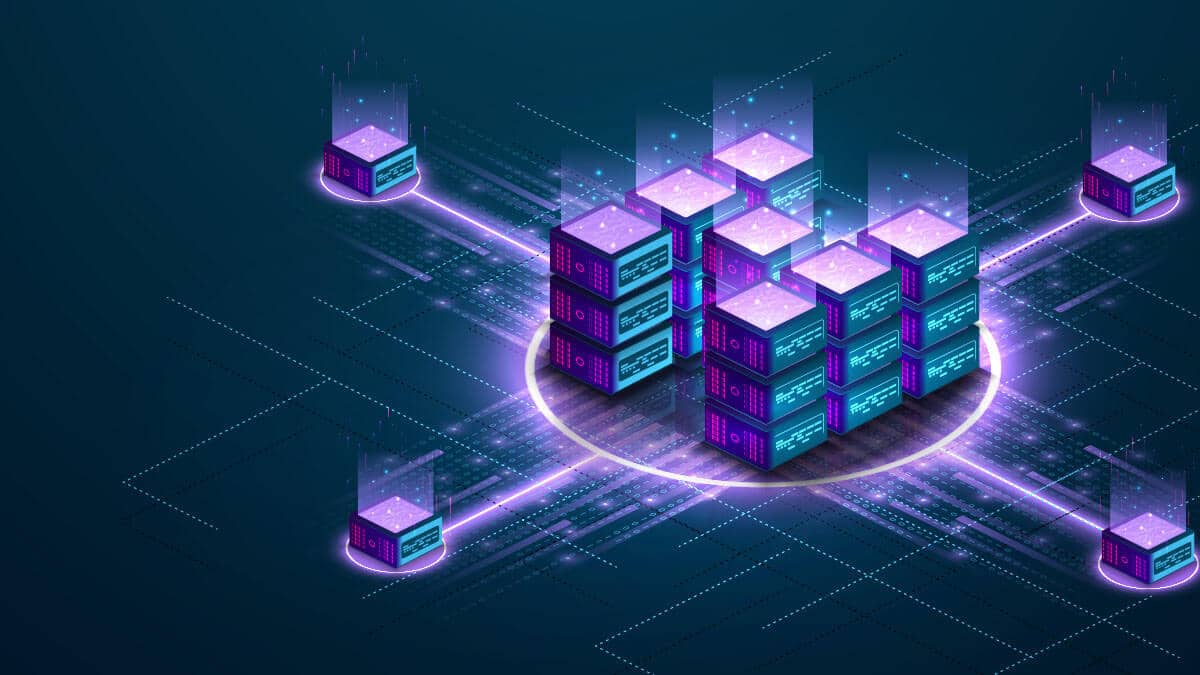How blockchain might transform the way we work
 Blockchain technology, initially introduced as the underlying technology behind Bitcoin, has emerged as a disruptive force with the potential to revolutionize various industries beyond cryptocurrency.
Blockchain technology, initially introduced as the underlying technology behind Bitcoin, has emerged as a disruptive force with the potential to revolutionize various industries beyond cryptocurrency.
One of the most promising areas where blockchain holds transformative potential is in the way we work. From streamlining processes to enhancing security and transparency, blockchain has the capability to reshape traditional work environments and unlock new possibilities for efficiency, collaboration, and innovation.
In this article, we'll explore how blockchain might transform the way we work across different sectors and functions, offering insights into the opportunities and challenges associated with its adoption.
Decentralized Collaboration and Remote Work
Blockchain technology facilitates decentralized collaboration by providing a secure and transparent platform for sharing and verifying information among distributed participants. This capability has significant implications for remote work arrangements, enabling teams to collaborate seamlessly across geographic boundaries without relying on centralized intermediaries.
Key aspects of blockchain-enabled decentralized collaboration include:
Secure Data Sharing: Blockchain's decentralized ledger ensures the integrity and immutability of shared data, reducing the risk of data tampering or unauthorized access. This enhances trust among remote team members and allows for secure sharing of sensitive information.
Smart Contracts: Smart contracts, self-executing contracts with coded terms and conditions, automate agreement enforcement and eliminate the need for intermediaries in contract management. Remote teams can use smart contracts to facilitate payments, track deliverables, and enforce contractual obligations transparently and efficiently.
Decentralized Autonomous Organizations (DAOs): DAOs are organizations governed by smart contracts and decentralized decision-making mechanisms. Remote teams can leverage DAOs to establish transparent governance structures, distribute ownership and decision-making power, and incentivize contributions without traditional hierarchical structures.
Supply Chain Management and Traceability
Blockchain technology offers unprecedented transparency and traceability in supply chain management, enabling end-to-end visibility and accountability throughout the supply chain ecosystem. This transparency enhances efficiency, reduces costs, and mitigates risks associated with counterfeit goods, fraud, and supply chain disruptions.
Key applications of blockchain in supply chain management include:
Traceability and Provenance: Blockchain enables the recording of every transaction and movement of goods on an immutable ledger, allowing stakeholders to trace the origin, journey, and authenticity of products from source to destination. This enhances accountability and consumer trust by providing verifiable proof of product provenance.
Supply Chain Optimization: Blockchain facilitates real-time tracking of inventory, shipments, and logistics processes, optimizing supply chain operations and reducing inefficiencies. Smart contracts can automate supply chain workflows, such as order fulfillment, payment processing, and compliance verification, streamlining processes and reducing administrative overhead.
Compliance and Risk Management: Blockchain enables the transparent recording and verification of compliance data, certifications, and regulatory documents across the supply chain. This ensures adherence to industry standards, regulatory requirements, and sustainability initiatives, mitigating risks related to non-compliance and reputational damage.
Identity Management and Digital Credentials
Blockchain technology offers a decentralized and secure solution for identity management and digital credentials, empowering individuals to control and share their personal information and credentials securely. This has implications for various aspects of work, including employee onboarding, credential verification, and access control.
Key features of blockchain-based identity management include:
Self-Sovereign Identity: Blockchain enables individuals to create and manage their digital identities autonomously, without relying on centralized authorities or intermediaries. Self-sovereign identity solutions allow individuals to control access to their personal information and share verifiable credentials with trusted parties securely.
Digital Credentials and Certificates: Blockchain enables the issuance and verification of digital credentials, such as academic degrees, professional certifications, and licenses, on a tamper-proof ledger. This reduces the risk of credential fraud and simplifies the process of verifying qualifications for employers, educational institutions, and regulatory bodies.
Access Control and Authentication: Blockchain-based identity solutions can enhance access control mechanisms by providing secure and decentralized authentication methods. Decentralized identifiers (DIDs) and verifiable credentials enable seamless authentication and authorization processes while preserving user privacy and security.
Intellectual Property Rights and Digital Assets
Blockchain technology offers innovative solutions for managing intellectual property rights and digital assets, facilitating secure ownership, licensing, and monetization of creative works and digital content. This has implications for content creators, artists, musicians, and other creative professionals seeking to protect and monetize their intellectual property.
Key applications of blockchain in intellectual property management include:
Digital Rights Management (DRM): Blockchain enables the creation of decentralized DRM systems that protect digital content from unauthorized copying, distribution, and usage. Smart contracts can enforce licensing terms, royalties, and usage rights transparently and automatically, ensuring fair compensation for content creators and rights holders.
Tokenization of Assets: Blockchain enables the tokenization of real-world assets, such as art, music, real estate, and patents, as digital tokens on a blockchain network. This fractional ownership model allows investors to buy and sell shares of assets efficiently, democratizing access to investment opportunities and unlocking liquidity for illiquid assets.
Royalty Tracking and Payments: Blockchain-based royalty tracking systems provide transparent and auditable records of content usage and revenue distribution. Smart contracts can automate royalty calculations and payments, ensuring timely and accurate compensation for content creators and rights holders based on usage metrics.
Conclusion
Blockchain technology holds immense potential to transform the way we work across various industries and functions, offering innovative solutions for collaboration, supply chain management, identity management, intellectual property rights, and more. By leveraging blockchain's decentralized, secure, and transparent capabilities, organizations can streamline processes, enhance trust, and unlock new opportunities for efficiency, innovation, and value creation. However, the widespread adoption of blockchain in the workplace requires overcoming technical challenges, regulatory barriers, and cultural resistance. With continued innovation and collaboration, blockchain has the power to revolutionize the future of work, empowering individuals and organizations to thrive in an increasingly digital and decentralized world.







![[LIVE] Engage2Earn: Julian Hill Bruce boost](https://cdn.bulbapp.io/frontend/images/dbf23bb3-aba5-43ea-9678-e8c2dbad951c/1)

![[ℕ𝕖𝕧𝕖𝕣] 𝕊𝕖𝕝𝕝 𝕐𝕠𝕦𝕣 𝔹𝕚𝕥𝕔𝕠𝕚𝕟 - And Now What.... Pray To The God Of Hopium?](https://cdn.bulbapp.io/frontend/images/79e7827b-c644-4853-b048-a9601a8a8da7/1)






























